Storm Arwen: Ofgem report 'needed to address lack of maintenance'
- Published
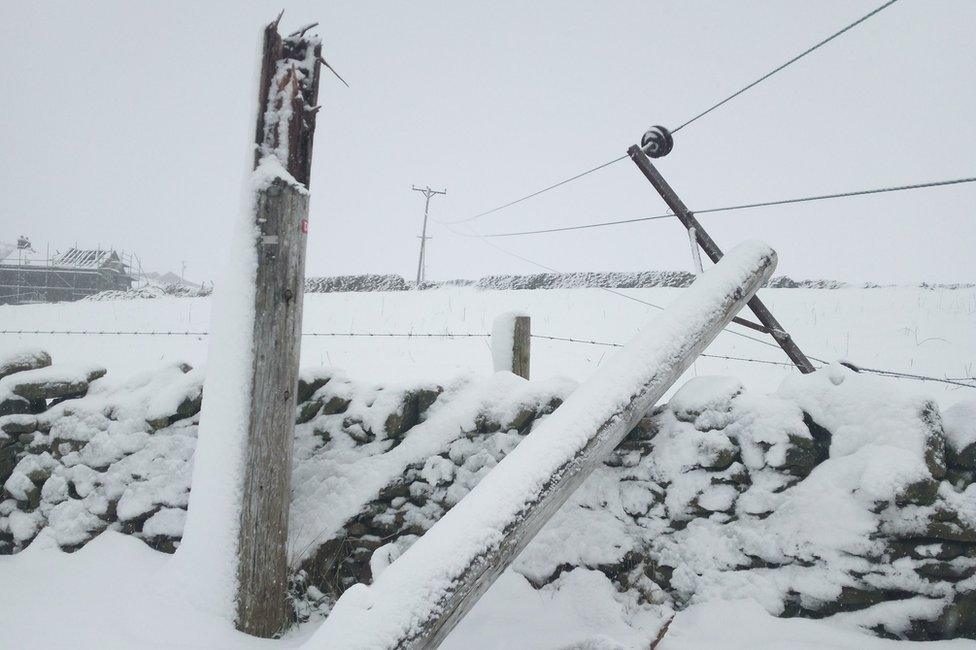
The Storm Arwen power cuts were compounded by heavy snow in parts of northern England
A resident left without power for 10 days after Storm Arwen says a report on power companies' responses should have paid more attention to maintenance.
Regulator Ofgem noted "unacceptably" long power cuts, poor communications and inadequate planning.
But Neil Russell from Northumberland said it did not address staffing and maintenance issues enough.
The issue was not "being in a position to fix something" but being "robust enough" to survive a storm, he said.
Get ready for more storm power cuts, energy firms told
A number of the poles bringing cables to Mr Russell's house were either rotten or leaning over, he said.
"You would hope that Ofgem would be going back to Northern Powergrid to say, 'right what were your maintenance expenditure and survey regimes?'," he said.
"You'd have a planned survey database, that would pick up on condition and then condition would drive replacement."
He said he believed the company had "pretty much stopped" doing this and was just going out "on a reactive basis and fixing stuff that's knackered and patching it up".
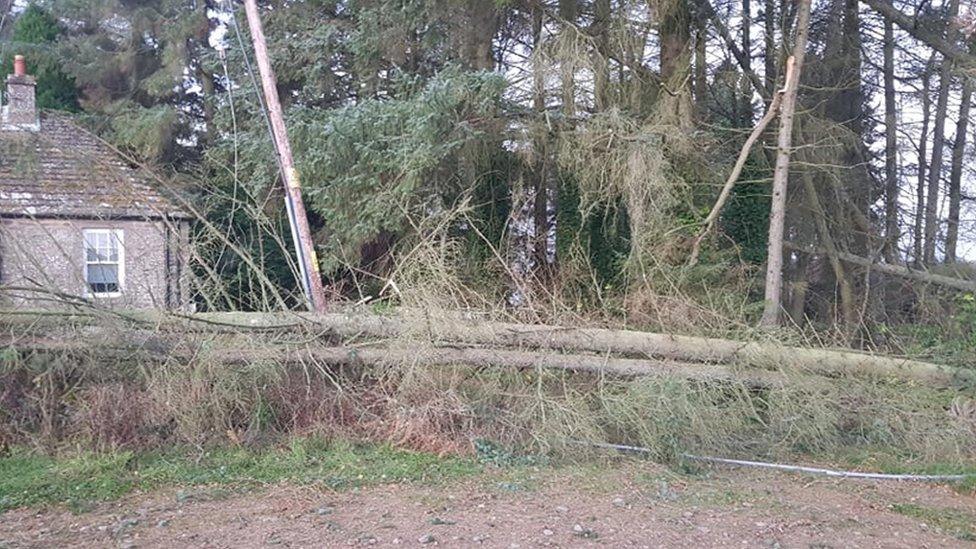
Storm Arwen brought down hundreds of trees, many taking out phone and power lines on their way down
Severe wind, rain and snow across northern England and Scotland at the end of November last year left more than a million properties without power.
Ofgem's report into the response of distribution network operators (DNOs), who are responsible for getting electricity to homes and businesses, does reflect on the condition of poles and said there was "some correlation between damaged poles and their age", with between 50% and 75% over 40 years old.
But it said the condition of poles did not seem to be as significant.
It said further work was needed to identify maintenance issues and in effect just recommended a review of how the condition of poles was reviewed.
North Durham Labour MP Kevan Jones said the network needed investment and "a comprehensive survey to be done of how resilient" it was.
"Because clearly it's not," he said.
"The power was off in some communities a lot longer because the components that were being used were old and they couldn't be sourced.
"We have powerlines above ground still in some very vulnerable, windy communities."
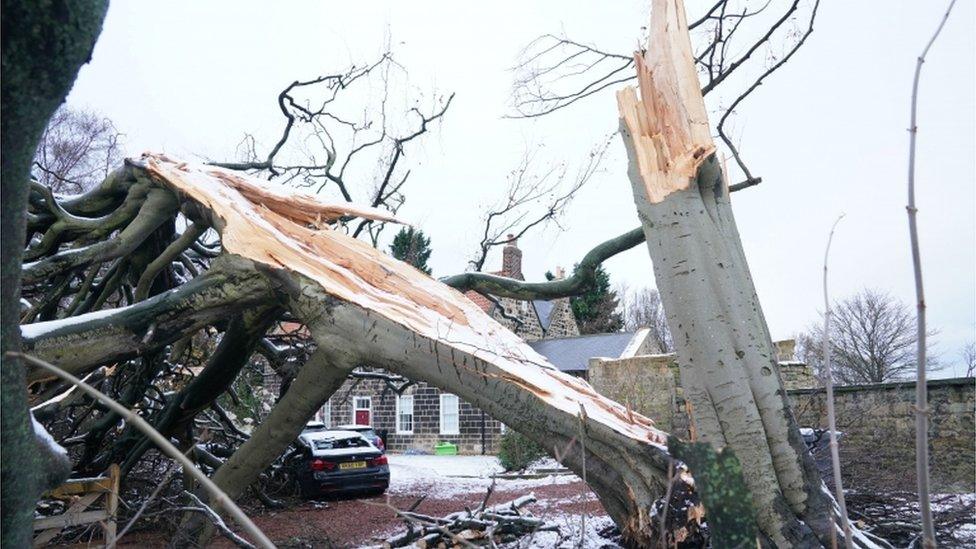
The storm split even mature trees causing widespread damage
Ofgem's report, external found some some power cuts were "unacceptably" long, communications were poor and sometimes inaccurate and compensation took too long.
It said the DNOs emergency plans were not adequate and raised questions over the maintenance of network poles and cables.
It recommended network companies should show Ofgem their plans for winter and "stress test" their websites and call centres to ensure they have sufficient capacity for severe weather events.
Compensation systems should be "more robust" and the £700 cap should be voluntarily lifted in future storms.
Mr Jones said he was pleased Ofgem had identified problems raised by householders at the time but said it should ensure the DNOs accepted changes needed to be made.
"Northern Powergrid's response made the situation worse in many cases because they made promises the weren't delivering," he said.
"They were in complete denial for a week of the extent of the problem."
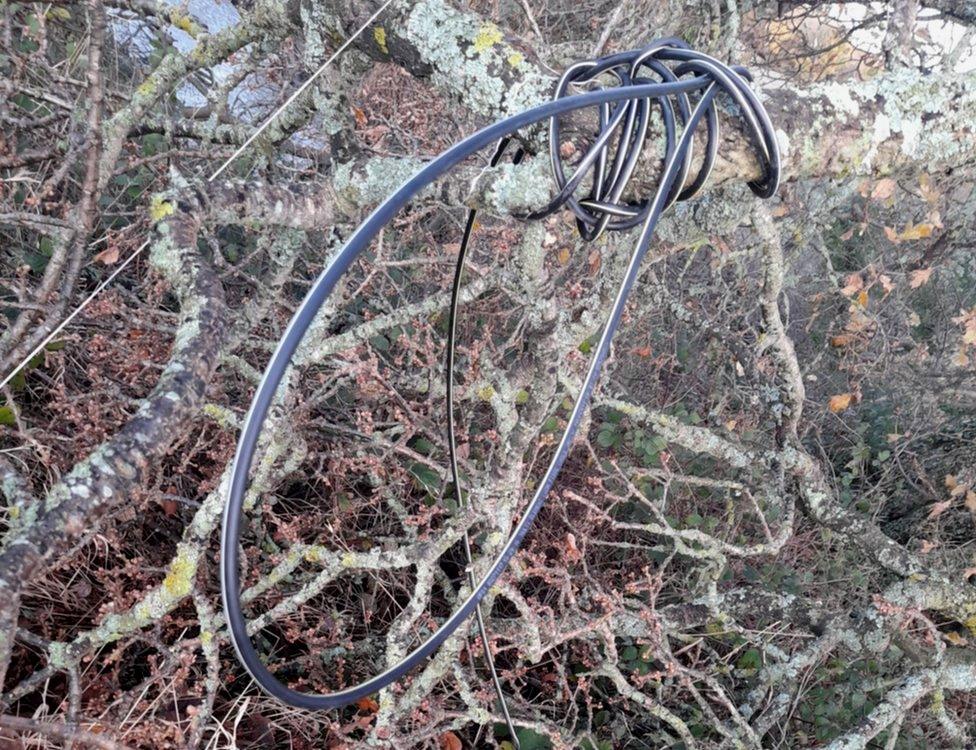
In parts of Northumberland loose power cables wrapped round branches to be kept out of the way became a common sight
The report also noted:
NPG did not directly contact vulnerable customers enrolled on its Priority Services Register prior to Storm Arwen
Customers found it very difficult to contact power companies via phone and had difficulty accessing accurate information and reporting power cuts and damage
NPG's website was also unavailable for a short period of time as it was unable to deal with the volume of traffic and Electricity North West (ENWL) switched off its call back function
Some firms, including NPG and ENWL, had "far fewer" resources deployed in the early stages of their response compared to other DNOs
NPG had the the longest recorded wait time to speak to a call centre agent of just under six hours, with an average wait time of 36 minutes, compared with under eight minutes for the other DNOs
NPG said it would "play our part in delivering the improvements outlined".
Since 2015 and by the end of 2023 it would have invested almost £1bn in "maintaining the long term health of our network and increasing its resilience" with about £200m "focused directly" on overhead lines, it said.
"We have proposed increased investment in our overhead lines of around 60%, along with over £50m on tree cutting over the next five years."
ENWL said it had brought forward £5.2m investment in its network "on top of the £140m which it spends on reliability and resilience each year".
It said it was also investing £1.2m in providing more accurate information on restoration times.
Jamie Sunderland, from the small village of Brigsteer near Kendal in Cumbria, was pleased the report commented on the lack of reliable information, which he considered to be the primary failing.
"The 'unacceptable service' line is accurate", he said.
"If we'd been told more accurately that the power was going to be off for three or four days then we'd have been able to plan more accurately.
"We didn't think to empty the fridge or the freezer, thinking it was only for a short time and all that food went to waste."

Follow BBC North East & Cumbria on Twitter, external, Facebook, external and Instagram, external. Send your story ideas to northeastandcumbria@bbc.co.uk, external.
- Published9 June 2022

- Published9 January 2022
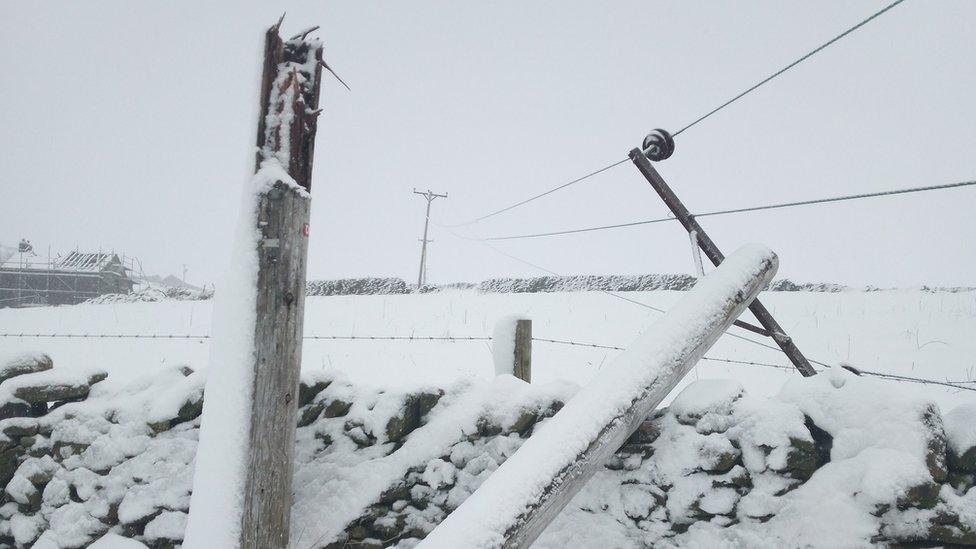
- Published30 November 2021
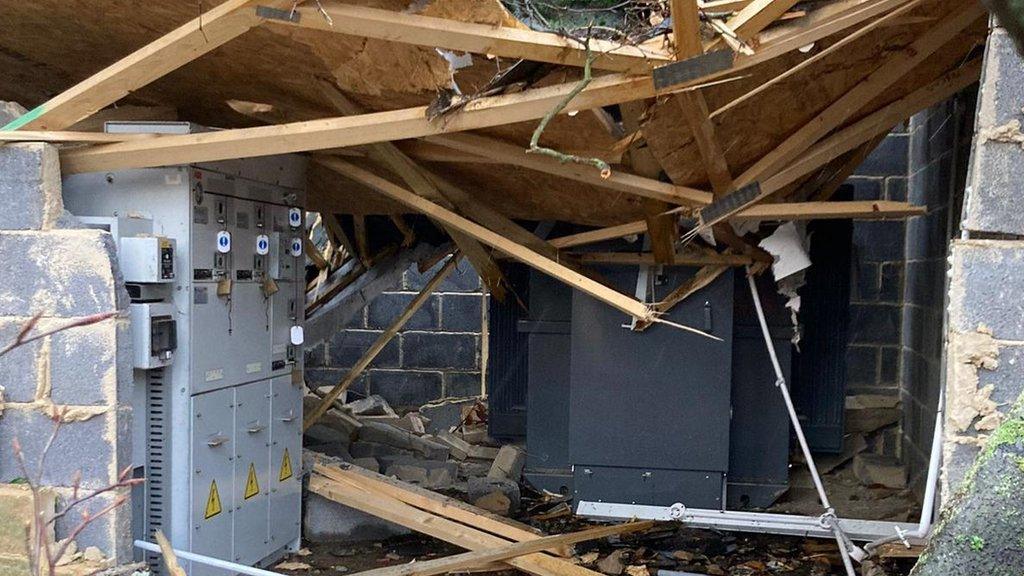
- Published26 February 2022
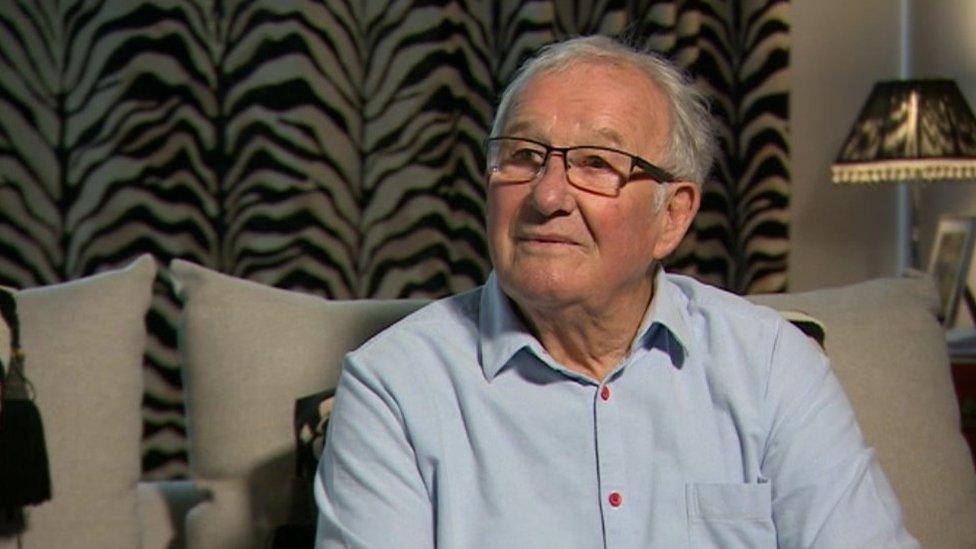
- Published9 February 2022
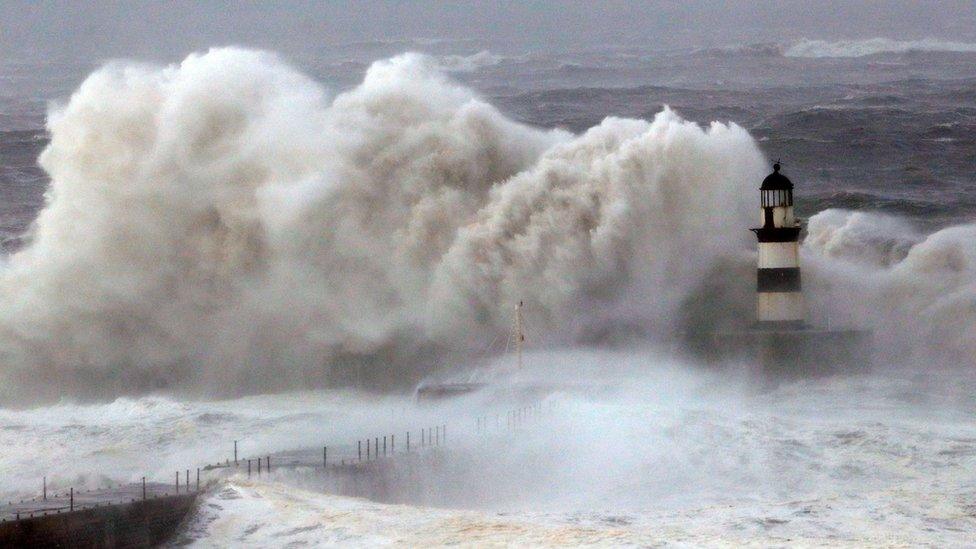
- Published18 January 2022

- Published3 December 2021
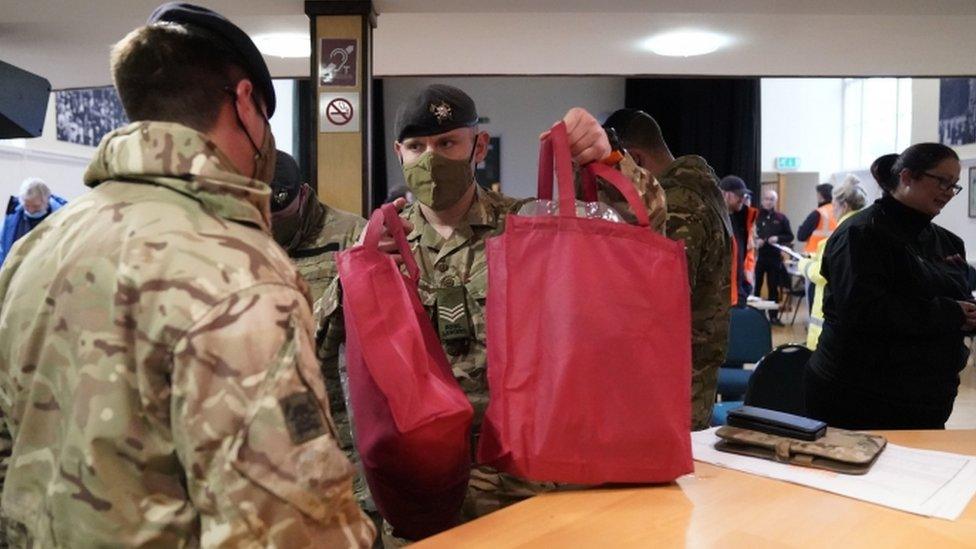
- Published1 December 2021

- Published12 December 2021
